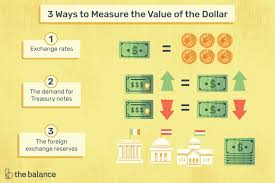
Breaking News
 What They Don't Tell You About Autoimmune Disorders
What They Don't Tell You About Autoimmune Disorders
 Jim Lovell, commander of NASA's Apollo 13 moon mission, dies at 97
Jim Lovell, commander of NASA's Apollo 13 moon mission, dies at 97
 Powerful new oral painkiller blocks signals without sedation or addiction
Powerful new oral painkiller blocks signals without sedation or addiction
 Tesla Gets a Texas Rideshare Network License
Tesla Gets a Texas Rideshare Network License
Top Tech News
 3D printing set to slash nuclear plant build times & costs
3D printing set to slash nuclear plant build times & costs
 You can design the wheels for NASA's next moon vehicle with the 'Rock and Roll Challenge
You can design the wheels for NASA's next moon vehicle with the 'Rock and Roll Challenge
 'Robot skin' beats human reflexes, transforms grip with fabric-powered touch
'Robot skin' beats human reflexes, transforms grip with fabric-powered touch
 World's first nuclear fusion plant being built in US to power Microsoft data centers
World's first nuclear fusion plant being built in US to power Microsoft data centers
 The mitochondria are more than just the "powerhouse of the cell" – they initiate immune...
The mitochondria are more than just the "powerhouse of the cell" – they initiate immune...
 Historic Aviation Engine Advance to Unlock Hypersonic Mach 10 Planes
Historic Aviation Engine Advance to Unlock Hypersonic Mach 10 Planes
 OpenAI CEO Sam Altman Pitches Eyeball-Scanning World ID to Bankers
OpenAI CEO Sam Altman Pitches Eyeball-Scanning World ID to Bankers
 New 3D-printed titanium alloy is stronger and cheaper than ever before
New 3D-printed titanium alloy is stronger and cheaper than ever before
 What is Unitree's new $6,000 humanoid robot good for?
What is Unitree's new $6,000 humanoid robot good for?
 "No CGI, No AI, Pure Engineering": Watch Raw Footage Of 'Star Wars'-Style Speeder
"No CGI, No AI, Pure Engineering": Watch Raw Footage Of 'Star Wars'-Style Speeder
How Does Money Acquire its Value?

For some commentators, the value of money is because of social convention. What this implies is that money has value because it is accepted, and why is it accepted? Because it has value and is accepted! Obviously, this is not a good explanation of why and how money has value.
The Difference between Money and Other Goods
Let us try another approach. Demand for a good arises from its perceived benefit. For instance, people demand food because of the nourishment it offers them. Regarding money, people demand it, not for direct use in consumption, but in order to exchange it for other goods and services. Money is not useful in itself, but because it has an exchange value—it is exchangeable in terms of other goods and services. Money is demanded because the benefit it offers is its present and future purchasing power.



